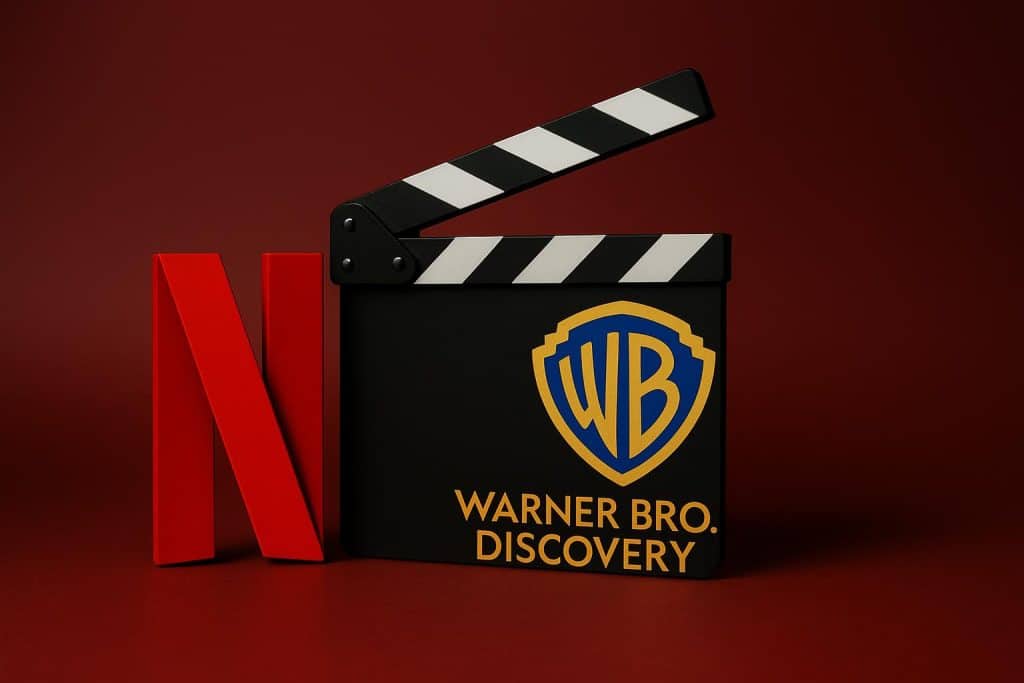Netflix is rumored to be planning a bid for Warner Bros. Discovery (WBD), the parent company of one of its main rivals, HBO. If that happens, the streaming could change in ways that are hard to predict.
Fans might see new homes for Game of Thrones, The Sopranos or Succession. This could mean more bundling, higher prices, and fewer choices for viewers. In short, subscribers could face major changes, though the outcome remains unclear.
The report comes from unnamed insiders and has not been confirmed. Warner Bros. Discovery has been undergoing significant changes lately – tackling debt, trimming assets, planning spin‑offs, separating studios from distribution, doubling down on streaming, and expanding its global networks.
Those moves make a takeover seem plausible, and such a possibility could impact Netflix’s standing on the SP500 heatmap. Still, numerous obstacles remain: financing, regulatory scrutiny, and current contracts could all prevent the anticipated outcome.
Why HBO licenses are central to the debate
Warner Bros. Discovery owns HBO, which holds the rights to some of the major shows — including Game of Thrones, The Sopranos, The Last of Us, and Succession — along with a vast library of original series, movies, and classic franchises.
HBO has operated as both a creator and distributor, while also licensing regional broadcasting rights to other platforms worldwide, such as OCS in Europe. These licencing agreements often span years and may be either exclusive or shared.
Some analysts suggest that such an acquisition could significantly expand Netflix’s content library, though they also warn about the risks of added debt. Others argue that Warner might prefer to stay independent to retain control of its streaming platform.
If a deal were finalized, HBO shows could appear in Netflix’s global catalog. For viewers, this might mean a single subscription covering more of their favorite series and films.
The idea sounds appealing, but it could also drive prices higher. Netflix might introduce a premium tier that includes HBO content, or raise its standard fees.
Convenience, then, could come at a cost, which many users may question. Also, some might express concern about Netflix’s growing market dominance.
Fair competition usually brings lower prices and greater variety. A merger of this scale could eventually harm the streaming ecosystem, raising the question of what risks such a union might pose.
Risks and constraints not to be ignored:
- Antitrust and regulatory scrutiny: Competition authorities in many countries closely monitor media mergers involving major entertainment companies. A Netflix‑WBD deal might require divestitures or come with strict conditions.
- Debt and finances: WBD carries substantial debt and financial obligations. Any acquisition would be costly, and Netflix would need to show a clear path to profitability.
- Existing contracts: Current licensing deals could prevent HBO shows from appearing on Netflix in certain markets for years if local broadcasters already hold exclusive rights.
If the rumors prove true and the deal is finalized, fans could eventually find Game of Thrones, The Sopranos, and Stranger Things all under one streaming roof — a tempting prospect.
However, the path ahead looks uncertain — contracts still bind content, regulators could intervene, prices may rise, and licensing structures differ across countries.
For now, viewers should watch for new deals, renewals, or official announcements from either company. The streaming world rarely shifts overnight—changes, if they come, are likely to be gradual and uneven across markets.
